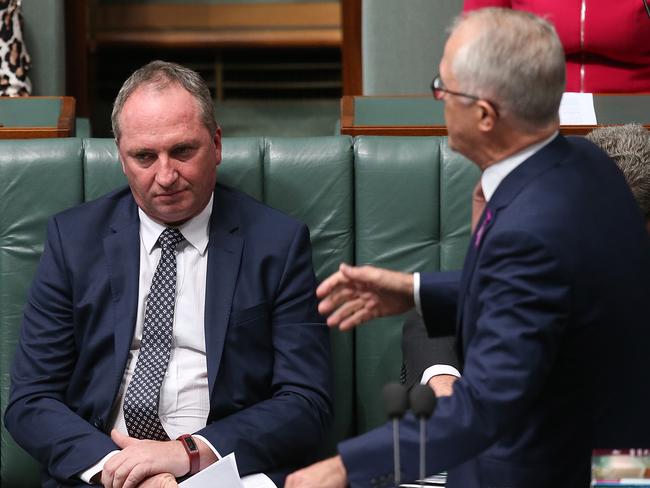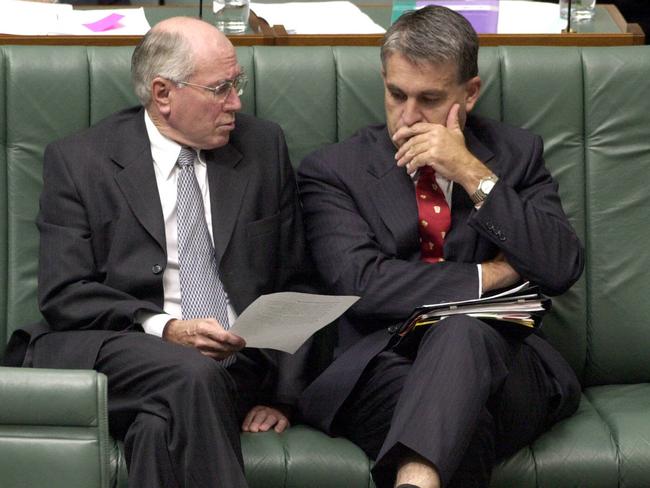Barnaby Joyce and Malcolm Turnbull’s death struggle puts Coalition at historic low
THE death struggle between Australia’s most senior political leaders — Prime Minister Malcolm Turnbull and his deputy Barnaby Joyce — marks a historic and epic low for the Coalition.
News
Don't miss out on the headlines from News. Followed categories will be added to My News.
THE death struggle between Australia’s most senior political leaders — Prime Minister Malcolm Turnbull and his deputy Barnaby Joyce — marks a historic and epic low for the Coalition.
As the Nationals’ official history says, the first coalition between the two major non-Labor parties dates back to 1923, when the-then Australian Country Party forged an agreement with the Nationalists, the forerunners of what became the Liberals.

This Coalition has been enduring and broken only for two short periods since December 1949 — the first by agreement in the 17-month Opposition period between December, 1972, and May, 1974.
The second, more recently, was when the-then Queensland Premier Sir Joh Bjelke-Petersen mounted an ill-fated campaign to become Prime Minister, believing he was best-placed to defeat Labor’s Bob Hawke.
“The 1987 ‘Joh for Canberra’ campaign was centrally aimed at breaking the Opposition Coalition of Ian Sinclair and John Howard,” the Nationals’ history says.
Mr Howard was later ousted as opposition leader by Andrew Peacock in 1989 in a coup which also deposed Mr Sinclair from the Nationals’ top job (the only time the party has forced out a leader).
But Mr Howard went on to become Australia’s second-longest serving prime minister, his term in office topped only by staunch Coalitionist Sir Robert Menzies.
Mr Howard forged an iron-clad bond with Nationals leaders Tim Fischer, John Anderson and Mark Vaile.

“I’ve always been a staunch Coalitionist and I will remain a staunch Coalitionist and people who believe that we can govern federally without a close partnership with the National Party are plain wrong and do not have the long term interests of our side of politics at heart,” Mr Howard told the New South Wales state Liberal Party council in 2001.
Even when introducing gun control legislation in the wake of the 1996 Port Arthur massacre — a defining moment of his time in office — Mr Howard kept his Coalition partners onside.
“I think it’s fair to say that from the very beginning a number of my senior colleagues, and particularly Tim Fischer and John Anderson from the National Party, pointed out to me that it was going to be very difficult. But, to their eternal credit, they were prepared to go along with it,” Mr Howard said in 2016.
Some Liberals are fond of asking: ‘What would John Howard do?’
It’s a fair bet he would never have allowed the present Coalition crisis to fester into such a catastrophe.
Originally published as Barnaby Joyce and Malcolm Turnbull’s death struggle puts Coalition at historic low


